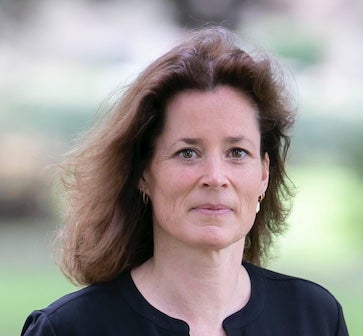Have you come through the pandemic happy or unhappy? According to genetics and well-being professor Meike Bartels, the reason is partly coded in our genes. „I carry out research to help those who are suffering."
You’re widely known as ‘the happiness professor’. What do you think of that title?
„To be honest, I could have done worse. I’m proud of it. The name implies that I have all the answers on how to become happy, however, and unfortunately I must disabuse you of that notion immediately!"
Your research focuses on happiness. How unhappy are we due to the pandemic?
„When it comes to happiness, on average we’re observing a decline. That’s not entirely unexpected, since people have lost loved ones or their jobs, or have no future prospects. By contrast, however, around 20 percent of people report that they actually feel happier and healthier. The pandemic has had the effect of simplifying busy, complicated lives."
„What I find fascinating about the pandemic is that many people, including young people, are actually still doing well."
Is there a difference between adults and young people with respect to this?
„The media regularly reports that young people are having a tougher time of it than adults. However, this view is often based on averages, with everyone being lumped in together. What I find fascinating about the pandemic is that many people, including young people, are actually still doing well. Of course there have been more issues and we need to find ways of solving them, but there are also many people who have fought their way through."

That seems to be the common thread throughout your research: rather than focusing on the group that is doing poorly, find out what we can learn from the group that is doing well.
„That’s right. For example, there’s a report on English youth that has just come out. It goes without saying that some children have suffered as a result of the pandemic, but the majority have not. So, why have many young people thrived? Why have they managed to move through to the next year of school? I want to take them as the benchmark, in order to be able to help those who are struggling."
„It turns out that the DNA of happy people looks different in some places."
Why are some more resilient to negative circumstances than others?
„The way individuals respond to circumstances is due to a combination of genetic and environmental factors. We have now discovered more than 300 genetic variants that can be linked to happiness and meaning. We were able to establish these genetic locations after matching the result of happiness questionnaires with the DNA of the respondents. It turns out that the DNA of happy people looks different in some places."
What does this mean for those who don’t possess these variants in their genotype?
„It means that they will experience greater difficulty in feeling happy, but it’s not the case that they can’t change all or part of their sense of happiness. I like to compare it to training in running. While some people are better equipped to be runners (or have more talent for it, as we like to say) and won’t need to train much, others will have to train hard and run for miles to achieve a similar result. But in the end, everyone who trains will eventually become a better runner."
„There’s no single recipe for happiness."
Are there similarities among happy people when it comes to external circumstances?
„There’s no single recipe for happiness; what works for one person won’t work for another. In general, however, you can say that social connections are important for people. What this looks like varies from person to person. For example, I might prefer to have one social contact whom I see frequently, while you might have twenty people that you see from time to time. Another factor that plays a role is safety in the neighbourhood in which you live or work. You can work to improve upon this as a city or country."
Do you think there will be permanent changes as a result of the pandemic?
„Naturally, this will vary from person to person. In general, people are creatures of habit. That’s obvious in the traffic jams that have already returned. I do hope that people have had the time and opportunity to reflect on what made them unhappy before the pandemic. We’ve been stuck in a rat race of our own making for a long time, and I hope we’re moving away from that now. I’m not bold enough to make predictions about whether anything will actually happen. If just two percent of the Dutch population increases their happiness by doing things differently following the pandemic, then I’ll be happy too."
During the Opening of the Academic Year on 6 September, Meike Bartels will discuss happiness and resilience among young people with Jacobine Geel, who is president of the executive board of GGZ Nederland until 1 December. Everyone can view the opening online. Register to receive a link on the day of the opening.








